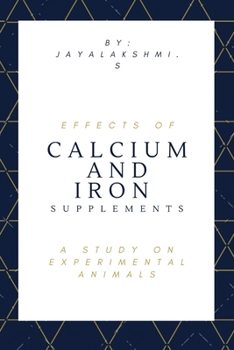Effects of Calcium and Iron Supplements A Study on experimental animals
Minerals, the vital micronutrients, are classified as macro and micro elements, and the third category which is ultra trace minerals (boron, silicon, arsenic, and nickel). Calcium, phosphorus, sodium, and chlorides are macrominerals and iron, copper, cobalt, potassium, magnesium, iodine, zinc, manganese, molybdenum, fluoride, chromium, selenium and sulfur are considered as microminerals. Minerals are considered as inorganic substances present in all body tissues and fluids, and they are essential for the maintenance of physicochemical processes which are necessary for the life. All living substances require these minerals for normal life. Regulating enzyme activities, maintaining acid-base balance and osmotic pressure, facilitating membrane transfer of essential nutrients and maintaining nerve and muscular activity are the basic functions which are performed by minerals . Iron and calcium supplements are usually prescribed to prevent anemia and osteoporosis, respectively. Since these two minerals are reported to inhibit zinc absorption, the negative impact of supplemental iron and calcium on zinc status is a cause for concern. The present investigation was undertaken to examine the effect of supplementary levels of iron and calcium in the diet on zinc status of experimental rats.





